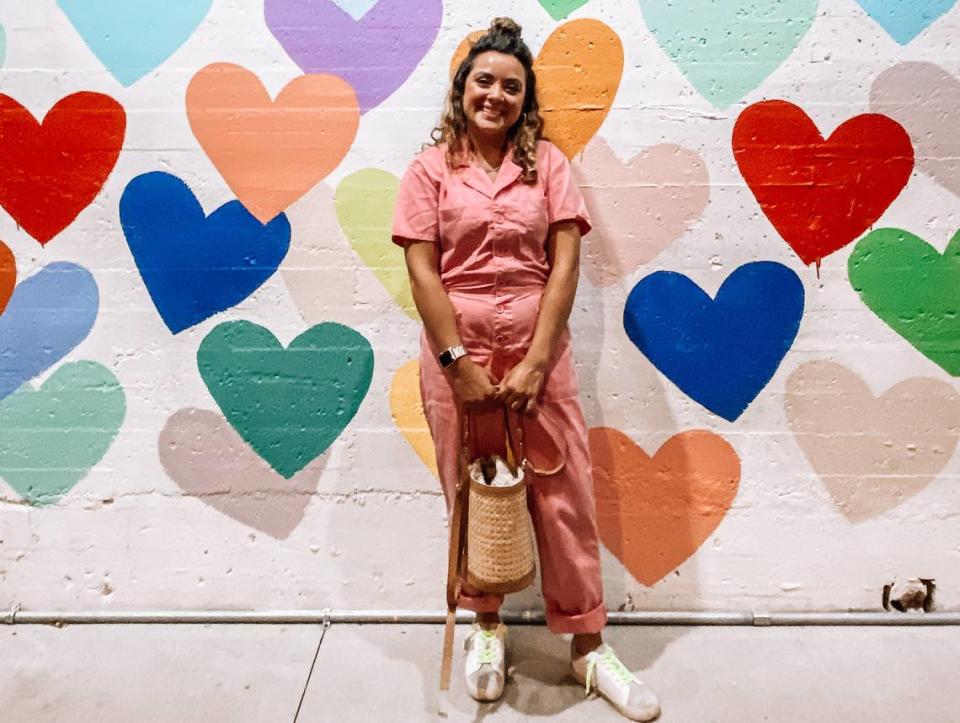Living with a roommate is difficult enough — now try it during a global pandemic.
Charlotte is approaching its one-year anniversary of coronavirus restrictions, which means we have spent a lot of time at home — like, a lot. Quality time among roommates has been completely redefined during the global COVID-19 pandemic since more people work, do virtual learning, eat, sleep and play all under one roof.
“It’s tough. You’re living in 900 to 1,200 square feet with someone every single day,” said Maria Abarca, a leasing consultant at 1100 South Apartments.
During the beginning stages of the pandemic, Rent.com offered a few helpful tips to help roommates stay sane during the lockdown. Some of the tips included social distancing, disinfecting surfaces, avoiding hosting and getting really honest about boundaries and COVID-19 comfort levels.
Now more than ever, open conversation is key to a healthy living environment. Do you and your roommate have clearly established protocols? Are you able to talk candidly about what you are and are not comfortable with? Abarca said several residents at 1100 South have given the notice to vacate apartments because of shifting roommate dynamics, while other roommate relationships have blossomed. “If you’re not on the same page regarding COVID or even daily upkeep of the home, there’s bound to be conflict,” Abarca said.
When word of COVID-19 started spreading, Marina Velo started working from her two-bedroom South End apartment almost immediately. However, her roommate at the time did not start working from home until a few months later. Because of their different work schedules and conflicting COVID-19 perspectives, the two roommates created a new set of rules for their household, though they both worked in their respective bedrooms.
“We made it a thing where we would not be in the same room as one another,” Velo said.

“My roommate would text me when she would get home, and I would go in my room to avoid contact. We also had a hand-washing rule, along with other rules, to prevent the spread of germs.”
Eventually, Velo and her former roommate’s differing perspectives and lifestyle choices drove a wedge between them, resulting in them no longer living together, Velo said.
‘Sharing this experience with someone rather than being isolated’
On the flip side, some roommate relationships have sustained and even blossomed during the pandemic. “I’ve had conversations with residents whose roommate relationships have really thrived in this season,” 1100 South’s Abarca said. “They’re on the same page, same lifestyles, etc, and they’re glad to be sharing this experience with someone rather than being isolated.”
Charlotte resident Sam Kuhn owns a three-bedroom house in the University area, and he has had a positive roommate experience during COVID-19. “We are both adults that trust each other enough to stay safe outside the home,” Kuhn said. One of the bedroom’s in Kuhn’s house is used as his office, while his roommate works from his bedroom.
Both Kuhn and his roommate started working from home very early in the pandemic, which ended up being a seamless transition. ”I am just fine with work from home. The house and yard are big enough to not get on each other’s nerves,” Kuhn said. “It was an easy transition.”
How to ensure your roommate situation stays positive
During COVID-19, the one thing that has been predictable is that nothing is predictable. This season of the pandemic is no exception — vaccination groups are opening up quickly (Group 3 is fully open as of March 3), and soon enough, everyone will be eligible for the COVID-19 vaccine. Yet, until everyone is eligible to be vaccinated, roommates may find each other in different groups — with different safety needs.
As we all work to continue slowing the spread in and outside of the home, Abarca shared a few ways she has seen residents accommodate different lifestyles. She has seen people quarantine in their bedrooms and has seen residents go back home to their families to allow for social distancing to take place.

“In any season, you want to make sure you and your roommate have some basics in common, which apply for anyone considering a roommate because of COVID,” Abarca said. “Financially, it makes more sense, but it may cost you more in the long run if you don’t find someone who complements you and vice versa.”
For those looking to cut living expenses or for those who want the company, Abarca offers a few bonus pointers to help when searching for a roommate during COVID-19.
(1) Have complementing lifestyles
Abarca said you don’t need to be a clone of your roommate, but you should at least have lifestyles that complement one another.
“Are you one who doesn’t like partying? You probably shouldn’t live with someone who does. Are you strict on social distancing?” Abarca said. “Don’t be afraid to ask someone how they are social distancing or adhering to the guidelines set in place. That’s important.”
(2) Create your own rhythms
Although we are still under restrictions, it is important to have your own hobbies and routines.
“Sharing a space with someone is going to make you want to pull your hair out sometimes, so you need to have your own rhythms that help you reset,” Abarca said. “Maybe it’s a walk after dinner on the light rail or at Freedom Park. Maybe it’s dinner by yourself on Tuesday.”
(3) Keep an open mind
“The world doesn’t need duplicates,” Abarca said. “It needs us to be our own individual selves. So, don’t expect your roommate to be you and do things how you’d want.”
The CDC also provides regulations and advice for avoiding the spread of COVID-19 in shared housing, such as going one at a time in elevators and staying at least six feet away from people you do not live with.
Get our newsletter
Sign up now to get CharlotteFive in your inbox daily.

